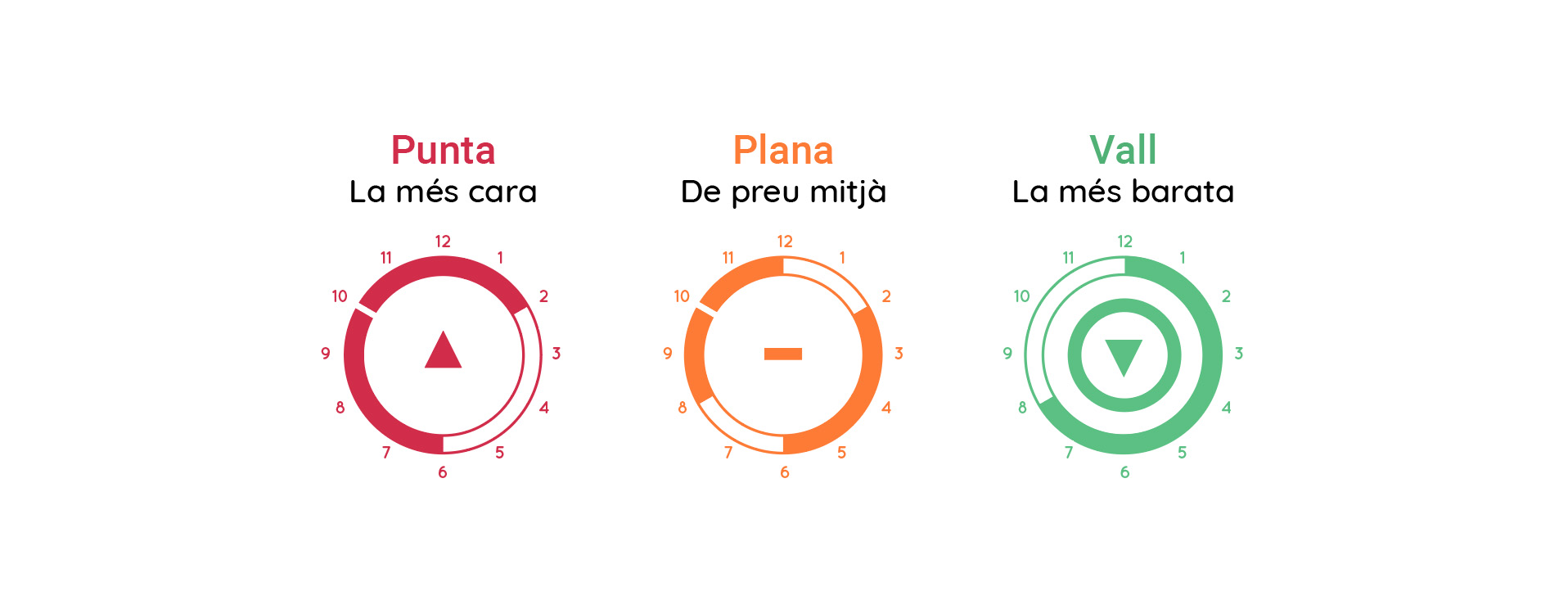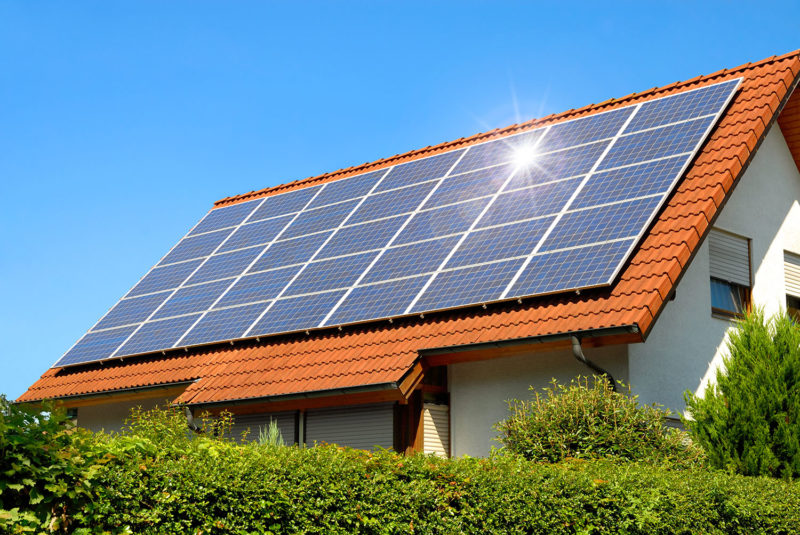

New electricity tariffs: how do they affect you?
The new electricity tariffs come into force from 1 June. Changes will be applied to the hourly consumption brackets and the possibility of contracting two different power supply levels for the same day will be introduced.
This new bill “will promote energy saving, efficiency, self-consumption and the deployment of electric vehicles”. Or so we are told by the Ministerio para la Transición Ecológica y lo Reto Demográfico.
It is designed to modify our consumption habits and will apply different prices based on three time slots and depending on whether it is a working day, weekend or public holiday. However, it will only affect domestic consumers and small businesses in the regulated market, the so-called Precio Voluntario para el Pequeño Consumidor (PVPC), and which have a contracted power of less than 15 kW.
Three time bands
Three time bands are established with different tolls and charges. The cost of electricity in the Valle time band will be up to 95% cheaper than in the Punta time band, which is why it is recommended that you try to concentrate most of your electricity consumption in this time band between midnight and 8:00 in the morning.
- Punta, the most expensive. Weekdays from 10 am to 2 pm and from 6 pm to 10 pm.
- Plana, the medium price. Weekdays from 8 a.m. to 10 a.m., from 2 p.m. to 6 p.m. and from 10 p.m. to midnight.
- Valle, the cheapest. Weekdays from midnight to 8.00 a.m. and also all weekends and public holidays.
Two different power ratings
Until now, we could only contract one power rating, but with the new tariff we can contract two different ratings, although if we do not specify otherwise they will be of the same rating.
This is an interesting change for consumers who have an electric car with a charging point at home, and who will be able to contract the highest power in the cheapest time slot and thus take advantage of the opportunity to charge the batteries at an almost symbolic cost of €1.42 per kW contracted (OCU). Similarly, consumers who have storage heaters will benefit from the possibility of charging the heat reserves in the highest power period at the lowest tariff.
Does this mean that I will pay more, or less?
Well, it will depend on each household and the distribution of consumption. If we already had an hourly discrimination contract that included morning hours, we will have to adapt to the new time slots if we do not want our electricity bill to increase, since a good part of these hours, which until now had the cheapest tariff, will now have the most expensive one.
On the other hand, if we adjust the contracted power and get into the habit of using washing machines and dryers at the weekend or at night, we will be compensated with lower annual bills.
So, don’t these changes affect free market consumers?
Indirectly, possibly yes, since regardless of the contract we have signed, it is common for marketers to reserve the right to pass on to customers any legislative changes in reference to tolls or charges, and therefore we must be alert to any letter we receive from our electricity supplier indicating changes in the contract.
A more simplified bill, or not
Although it will be shorter, only two pages, it will have more information, such as the two new power ratings and the three energy bands. And it will also include a QR code with which we will be able to access a comparison of available offers from the Comisión Nacional de los Mercados y la Competencia (CNMC).
Obviously, none of these changes affect the oligopoly that the large electricity companies still have in our national market, despite the relative fragmentation of alternative suppliers, and which ensures that a significant drop in electricity prices remains, unfortunately, a utopia. But in any case, we already have our homework to do, at the very least, to prevent our electricity bills from rising.
Do you want to be the first to receive the latest news about 11Onze? Click here to subscribe to our Telegram channel





Si, aquessta tarifa electrica després d’un any junt al canvi d’instal•lació a leds, ha frenat una mica les constants pujades de llum, ara el focus està en la factura de gas!😱 q cada any les comercialitzadores al caducar el contracte pugen el gas entre un 50% i un 88% es brutal, l’any que ve no em pillen ni de conya. Em sembla q de cara al futur próxim si tot continua igual, en un any em done de baixa del gas i em canvio els fogons a vitro elèctrica, la caldera per un termo elètric i els radiadors de gas a radiadors elèctrics. Es un risc tindreu tot elèctric sí, però es que amb els diners q et pugen el gas en un any amortitzes la renovació electrica, encara no estic convençut, però els nùmeros em quadren.
Bon resum. Prenem consciència.
Què bo!
👍
Quina, manera de robar tan bestia, però gràcies estar ben explicat
És important conèixer bé com ens afecten els canvis. M’alegro que t’hagi estat útil, Alícia.
Molt interessant, però ens están………
Moltes gràcies per seguir-nos, Carles.
Molt alertes doncs!
Tu ho has dit. A repassar la factura de dalt a baix!
Estar molt ben explicat lez diferents maneres d’aconseguir energia no elèctrica, ho direm així, però faig una pregunta com una persona individualment pot pot aconseguir instalar una d’elles si la comunitat de l’edifici no la segueix?
Si teniu espai de teulada suficient heu de quedar d,acord tots els veïns per instal.lar la fotovoltaica.
Gràcies per obrir debat i fer més participativa la plaça, gràcies pel teu comentari!
👍